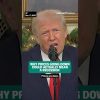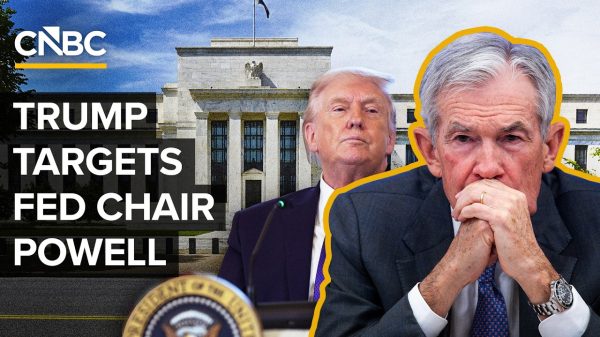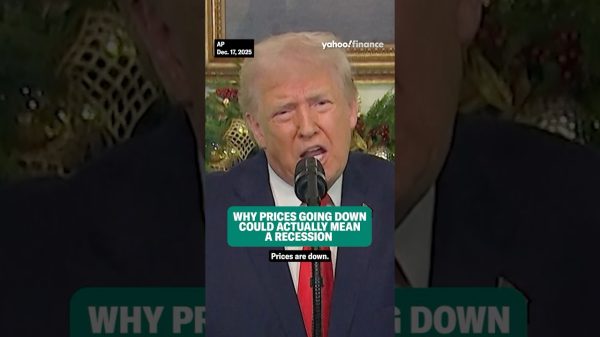© Reuters. FILE PHOTO: Signs explaining Federal Deposit Insurance Corporation (FDIC) and other banking policies are shown on the counter of a bank in Westminster, Colorado November 3, 2009. REUTERS/Rick Wilking/File Photo
By Pete Schroeder
WASHINGTON (Reuters) -Large U.S. lenders will bear most of the cost of replenishing a deposit insurance fund that was drained of $16 billion by the collapse of Silicon Valley Bank and two other lenders, although mid-sized banks will also be on the hook, the Federal Deposit Insurance Corporation (FDIC) said on Thursday.
The bank regulator will apply a “special assessment” fee of 0.125% to uninsured deposits of lenders in excess of $5 billion, based on the amount of uninsured deposits a bank held at the end of 2022, the FDIC proposed at a board meeting.
While the fee applies to all banks, in practice lenders with more than $50 billion in assets would cover over 95% of the cost, the agency said. Banks with less than $5 billion in assets would not pay any fee. Around 113 banks are expected to pay the fee.
The top 14 U.S. lenders will need to fork out an estimated $5.8 billion a year, which could erode their earnings per share by a median 3%, Credit Suisse analyst Susan Roth Katzke wrote in a report.
The levy would be collected over eight quarters beginning in June 2024, but could be adjusted as estimated losses to the insurance fund change. The extended timeline aims to minimize the impact on bank liquidity and is expected to have a negligible impact on bank capital, according to FDIC officials.
JPMorgan Chase & Co (NYSE:) is expected to pay an estimated $1.3 billion annual fee, followed by $1.1 billion for Bank of America Corp (NYSE:) and $898 million for Wells Fargo (NYSE:) & Co. The three banks declined to comment.
“This is a higher assessment than we were expecting as the FDIC is seeking to recoup the funds over just two years,” wrote TD Cowen analyst Jaret Seiberg in a research note. “We had expected the agency to spread the payments over at least three years.”
The Banks Index slid 0.6% on Thursday, while the KBW Regional Banking Index slumped more than 2%.
The FDIC fund, which guarantees customers’ bank deposits of up to $250,000, stood at $128.2 billion at the end of 2022, according to the FDIC.
Banks usually pay a quarterly fee to finance the fund, but the FDIC said the special levy was necessary to cover hefty costs it incurred after Silicon Valley Bank and Signature Bank (OTC:) failed in March. Both banks, which had extremely high levels of uninsured deposits, abruptly failed after depositors fled amid concerns over their financial health. Regulators declared them critical to the financial system, allowing the FDIC to backstop all deposits in a bid to stop the contagion spreading.
The seizure of First Republic Bank (OTC:) and sale to JP Morgan Chase this month is expected to cost that fund another $13 billion.
Other regional lenders with high proportions of uninsured deposits include Comerica (NYSE:) Bank, Western Alliance (NYSE:) Bank, Zions Bank and Synovus (NYSE:) Financial, according to a Reuters analysis from last month based on December data.
Comerica shares dropped almost 7%, Zions Bancorp and Synovus both fell more than 4%, while Western Alliance slid almost 1%. The banks did not immediately respond to requests for comment.
SMALL BANKS CHEER
Under law, the FDIC has discretion in designing the fee, and FDIC Chairman Martin Gruenberg said on Thursday the proposal targets those who benefited most from the backstop.
“In general, large banks with large amounts of uninsured deposits benefited the most from the systemic risk determination,” he said in a statement.
The Independent Community Bankers (NASDAQ:) of America (ICBA), Washington’s top small bank lobby group, applauded the plans.
“Community banks should not have to bear any financial responsibility for losses to the Deposit Insurance Fund caused by the miscalculations and speculative practices of large financial institutions,” ICBA CEO Rebeca Romero Rainey said in a statement.
The FDIC board approved the proposal on Thursday along partisan lines, with its three Democratic board members supporting it and its two Republican members voting no, arguing that the banks on the hook to pay the most were generally the biggest beneficiaries of the flight to safety after SVB’s collapse. The agency will now solicit feedback from the banking industry and the public, before ultimately finalizing the new fee.
TD Cowen’s Sieberg said he did not see the dissenters’ arguments prevailing as it would effectively exempt the global systemically important banks from the special assessment.
“We do not see that as politically viable,” Sieberg said.
Read the full article here











